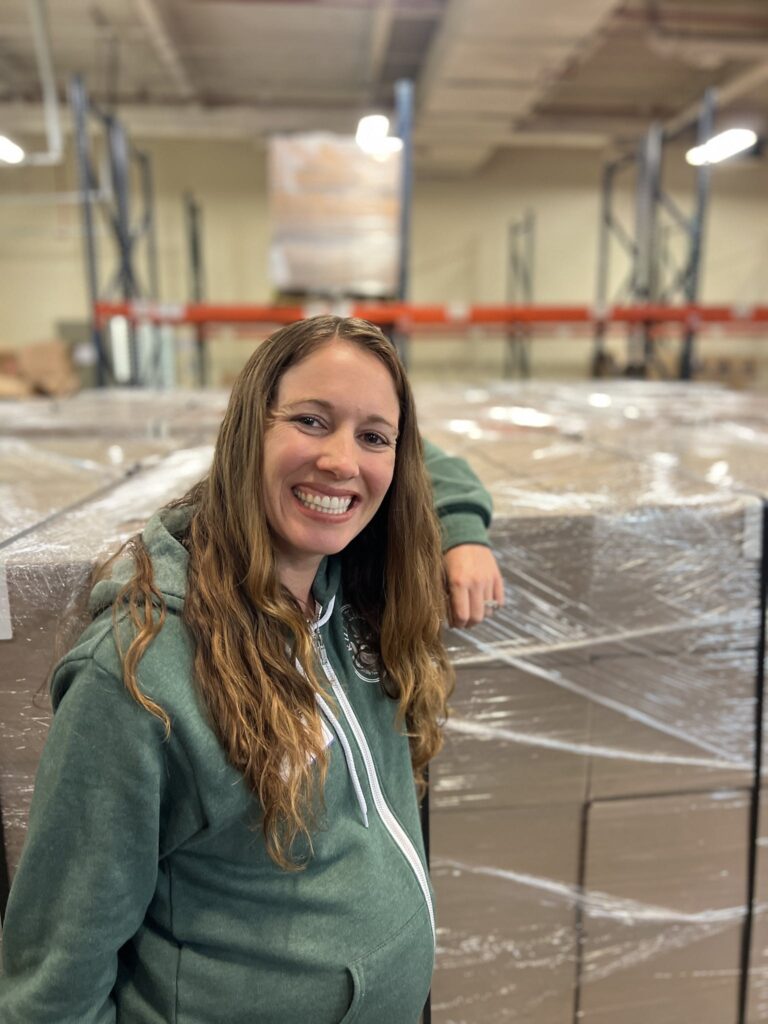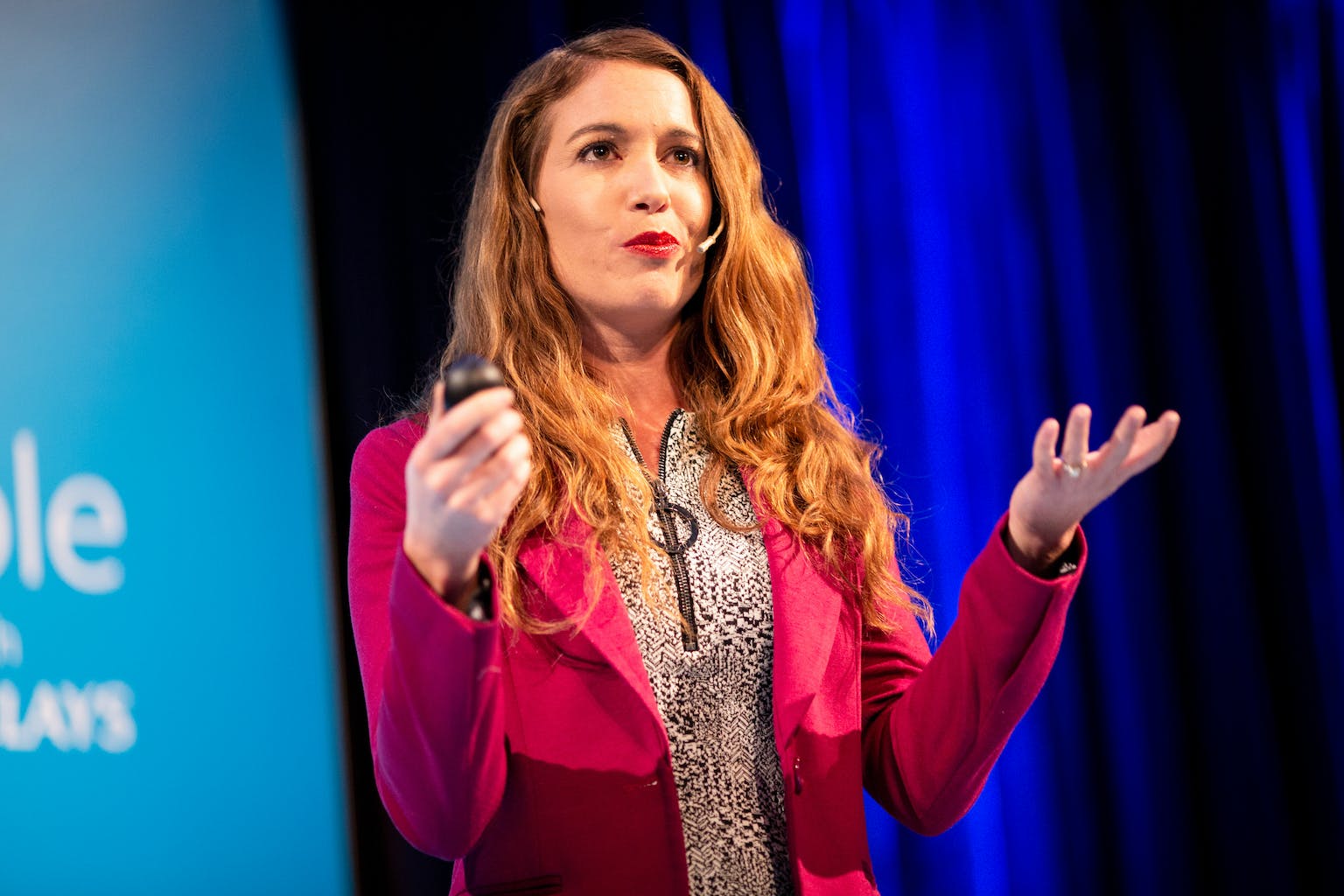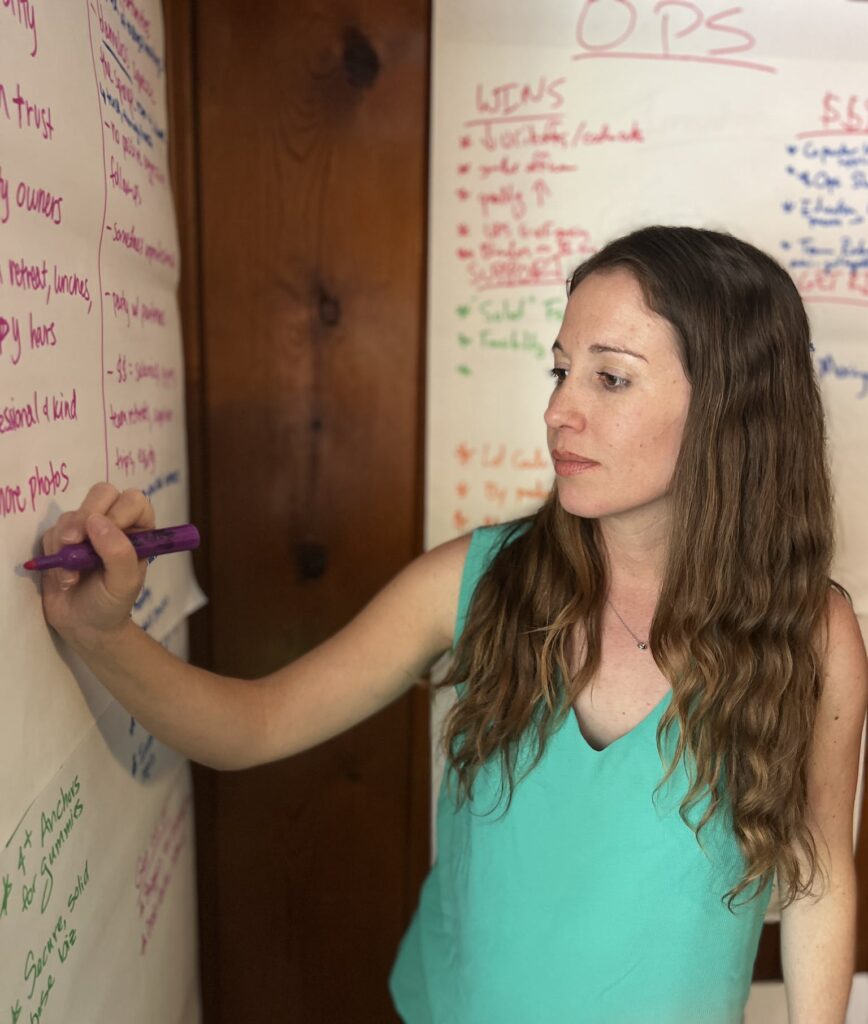From a Founder: 10 Lessons I Learned When Starting My Business
By: Lisa Curtis
When starting Kuli Kuli Foods, I made nearly every business mistake in the book. My business started from an idea I dreamed up in the Peace Corps and has since grown into a multi-million-dollar business that sells superfood products in 11,000 stores. But, as we’ve grown, I’ve continued to refine Kuli Kuli Foods. Here, I share a list of lessons learned over the last ten years—something I wish someone had sent me when I first started.

1. Treat Employees Like People, Not Robots
My idea for a superfood startup started as a feverish side hustle that turned into an all-consuming full-time role. As the founder of my business, I work more hours than almost anyone I know. In my youth, I expected everyone around me to keep up, but as I continued to work on my company’s growth, I realized I needed to shift my expectations of my employees. They cannot work all the time, and since they are working to grow someone else’s dreams, they might not be as motivated. Now, I invest time in understanding my employees’ dreams and actively help them bring theirs to life. By investing in their futures, I found my employees were happier and produced better results. For example, we give each employee equity in the company and work with them to craft an individual development plan to help them achieve their personal learning goals, even if they’re unrelated to Kuli Kuli.
2. Appreciate Your Co-Founders
One of my biggest regrets in starting Kuli Kuli is that my relationship with my childhood best friend was destroyed in the process. We became so busy working on the business we forgot to work on our personal relationship. We stopped being friends and eventually stopped being friendly co-workers. Since then, I learned that my greatest assets are the people around me. In losing that friendship, I learned how important it is to take a step back and appreciate that you’re all striving towards the same goals. My remaining co-founder and I now have monthly “founder walks” where we talk about our relationship both professionally and personally.

3. Choose Your Investors with Care
When you start a company, a common piece of advice is to choose your investors carefully. Since there’s not a long line of people willing to write you a check, the anticipation can be stressful. It took me almost a year and 30 different people to raise Kuli Kuli’s first $500,000. While raising the round, I had a difficult time working with one of my investors. One year later, I realized the relationship was not beneficial, so I was forced to find another investor to buy out his share. I’ve since gone on to evaluate my investors more carefully and have raised over $10M from well-known venture capital firms and Fortune 500 companies such as The Kellogg Company. Although raising funds for your business seems like the highest priority, choosing the right people to back your dreams is equally important. Having the wrong people invest in your business is worse than spending a few more months finding the right investors.

4. No Win Is Too Small to Celebrate
I care deeply about Kuli Kuli’s mission and have thrown myself into turning that vision into a reality. Because of that, it’s often hard to see the smaller wins. When we launched our 11,000th store or our amazing-tasting new superfood gummies, it was easy to gear up for the next milestone and not spend too much time celebrating our small victories. After a decade of running a business, I’ve realized that the roller-coaster is only fun if you celebrate the highs. Celebrating those highs makes you better able to cope with the inevitable lows.
5. Don’t Forget Your Friends
A friend told me recently that she’s glad I’ve become a better friend. During the early days of Kuli Kuli, I went to networking events almost every evening and spent weekends passing out samples in grocery stores. I made an effort to see my friends but often had to run off early to events or business meetings. I now know that the people I love are what makes life worth living, and they’re worth prioritizing.

6. Yes, You Will Be Rejected. Yes, That’s Ok.
As a startup founder, it’s only natural you live and breathe your company. When people quit, it was nearly impossible not to take it personally. My board helped me understand that while it’s crucial to conduct exit interviews and understand why people decided to leave, it’s also critical not to take it personally. Departures are opportunities to learn and build an even better team. The same logic applies to fundraising, pitching reporters, pitching buyers, and just about every other facet of CEO life. If you aren’t getting rejected on a regular basis, you’re not trying hard enough.
7. Self-Care Is Essential
Although I work more than most, I also sleep, exercise, and meditate daily. Often, when I’m stressed out and feel overwhelmed, I’ll go for a run. I’ve found that taking the time to care for myself and ensuring I’m in a positive, solution-oriented state allows me to be far more productive than burning the midnight oil to sink in a few more hours. In short, take care of yourself so you can take care of your business.

8. Culture Can’t Create Itself
Building a positive team culture, even at a small startup like Kuli Kuli, requires deliberate thought and structure. I used to think that leading by example was enough, but after we had multiple employees quit due to burnout, I realized that culture keeps people thriving and feeling balanced. I’ve since learned that documenting Kuli Kuli’s values, getting feedback from the team, and organizing team-building events have led to incredible company culture, resulting in a happier and more collaborative workplace.
9. Try Asking, Not Pitching
From investors to media to your team, you’ll be pitching all the time. While it’s important for founders to be highly effective at communicating their startup vision, it’s also important to know when to stop pitching. I’ve found that the greatest support Kuli Kuli has received comes when I stop pitching but rather explain the areas we’re struggling with and ask for help. It always amazes me how often people go to great lengths to help when you open up. Recently, I talked to a complete stranger at a networking event about supply chain challenges we were experiencing, and she was able to connect me to a new supplier who solved our shortage overnight.
10. Hire People Who Aren’t Like You
No one is great at everything. I could fill an entire page with my weaknesses. I’ve learned to hire for those weaknesses. I used to run all Kuli Kuli’s sales—then realized I had reached my limit and hired a head of sales with 20+ years of food industry experience. You need the self-awareness to recognize your weaknesses and the humility to hire people who can complement your strengths.
The wonder of entrepreneurship is that wherever you begin your journey, the road will be more crooked than you expect, and each bend will teach you about yourself, your company, and how to create success. I’ve learned a lot in the past decade, and I know the next decade has even more to teach me.
Facet Wealth, Inc. (“Facet”) is an SEC registered investment adviser headquartered in Baltimore, Maryland. This is not an offer to sell securities or the solicitation of an offer to purchase securities. This is not investment, financial, legal, or tax advice. Past performance is not a guarantee of future performance.
